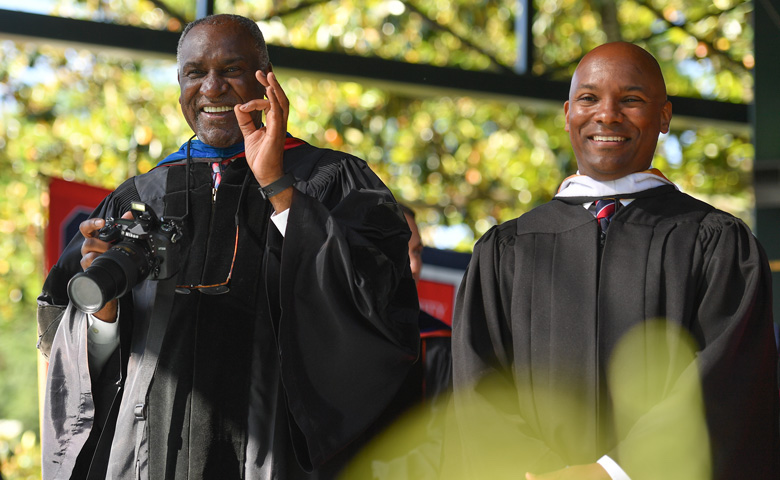Doctoral candidates present papers, network at American Mathematical Society meetings
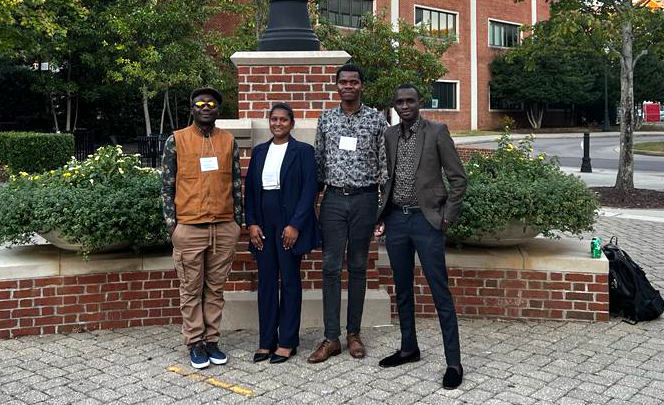
Martial Longla (left), associate professor of mathematics, and three UM doctoral students – Kanchana Madhumali Gamlat Esweda Gamladdalage, Mathias Muia and Mous-Abou Hamadou – attend a three-day American Mathematics Society sectional meeting in Chattanooga in October. Submitted photo
MARCH 12, 2023 BY ERIN GARRETT
The American Mathematical Society has awarded travel grants to several University of Mississippi doctoral students to discuss the advancements made in their mathematics research.
Mous-Abou Hamadou, Mathias Muia and Kanchana Madhumali Gamlat Esweda Gamladdalage presented research in Chattanooga, Tennessee, at the AMS Fall Southeastern Sectional Meeting.
Gamladdalage, who is from Polgahawela, Sri Lanka, presented her work in graph theory and combinatorics. Muia and Hamadou gave a talk on their paper that focuses on Markov chains, which is a model that describes the probability of a sequence of events occurring based on the previous event.
The paper studies three types of mixing of copula-based Markov chains and how they are affected by changes in their copulas.
“As a new student here in the U.S., this meeting gave me the opportunity to meet numerous mathematicians coming from different areas,” said Hamadou, from Maroua, Cameroon. “I got the chance to follow their presentations and, as a Ph.D. student, it helped me to find out some hints and ideas for future research projects.”
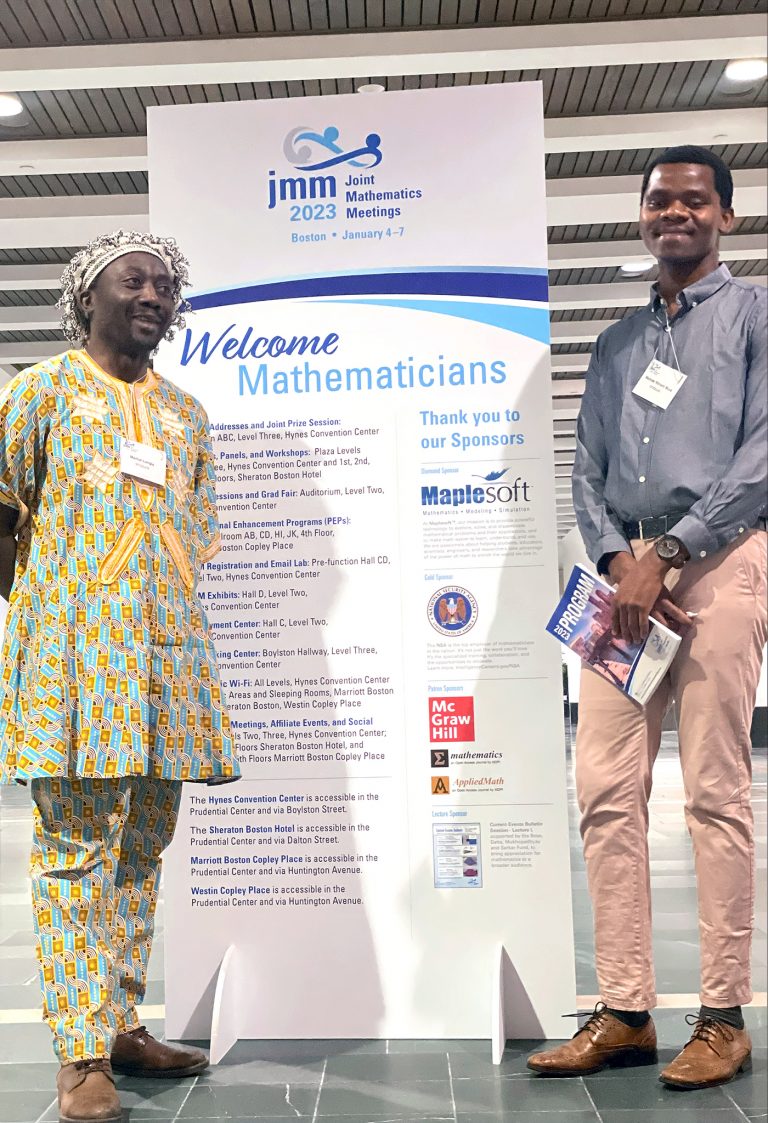
Mathematics professor Martial Longla (left) and doctoral student Mathias Muia traveled to Boston to attend the Joint Mathematics Meeting in January. Submitted photo
Muia and Gamladdalage also presented with Jamie Hernández Palacios in Boston at the Joint Mathematics Meeting in January. The event, hosted by AMS and other organizations, is the largest mathematics gathering in the world.
“Both conferences helped me build my professional contacts,” Gamladdalage said. “At JMM, I participated in the eighth annual AMS Graduate Student Chapter luncheon. Around 30 other graduate students across the U.S. attended, and Congressman Jerry McNerney spoke with us about the importance of advocating for science funding for mathematics.”
Martial Longla, associate professor of mathematics at UM, is often proud of his graduate students. It is rare for him to watch them present their own published papers at national meetings.
“It’s a testament to their work,” Longla said. “Some people graduate without any published papers and then find a way to publish something from their dissertation.
“To be a co-author while they are in their junior years as Ph.D. students shows that these students work hard and stand out.”
Muia and Gamladdalage gave presentations similar to the ones they gave in Chattanooga. Palacios, from Colima, Mexico, spoke during the analytic number theory session.
“I talked about an ongoing joint work with my adviser, Dr. (Micah) Milinovich,” Palacios said. “We give certain bounds for the gaps between the imaginary part of the nontrivial zeros of higher degree L-functions, using a method that had been first used for the Riemann zeta function, a very important function in our field.”
Muia, from a village called Nzouni in Kenya, is hoping to inspire others as a mathematics researcher and professor.
“Teaching is probably my No. 1 passion,” Muia said. “I like helping students understand mathematics and see its applicability in life.”
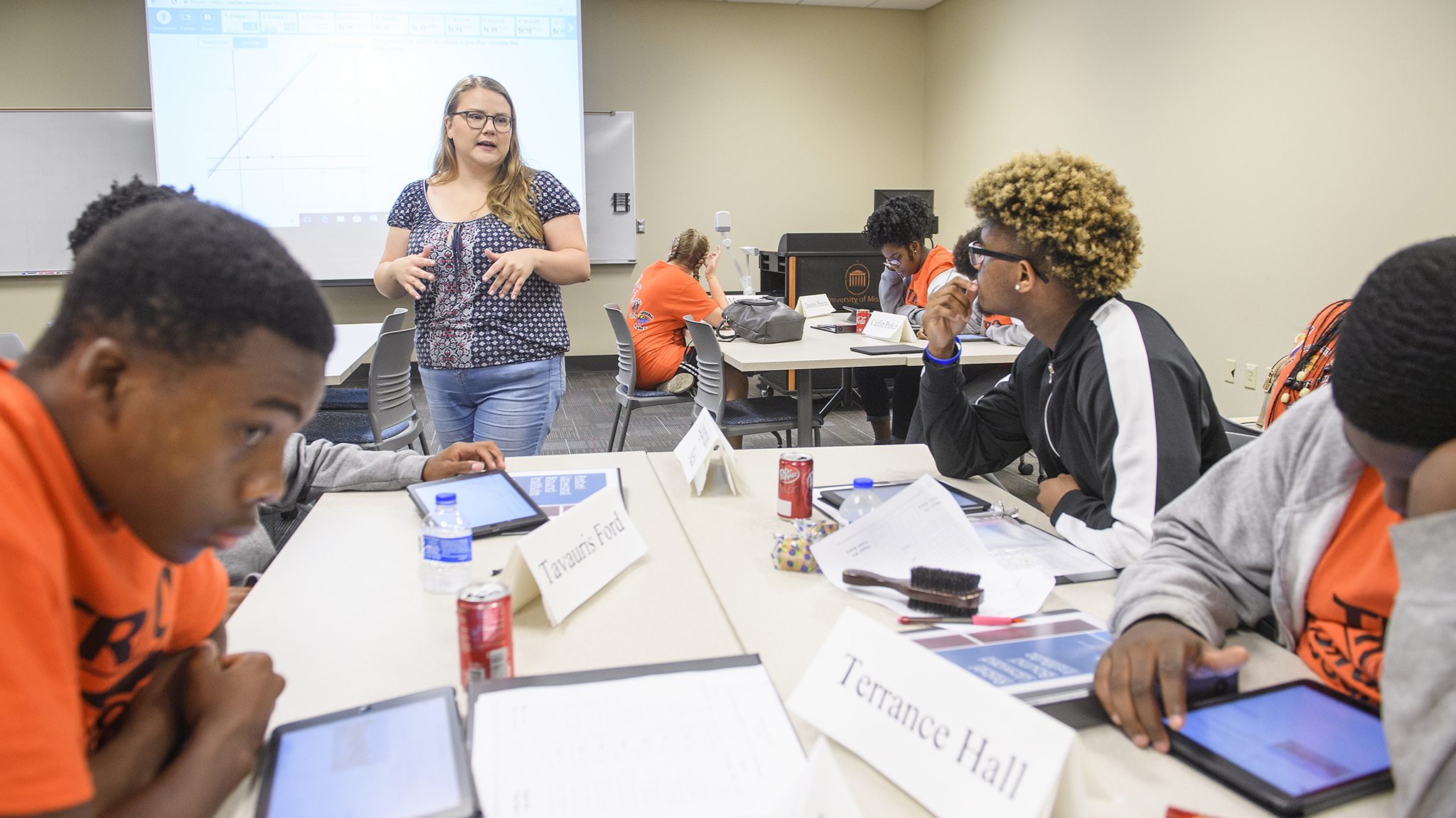
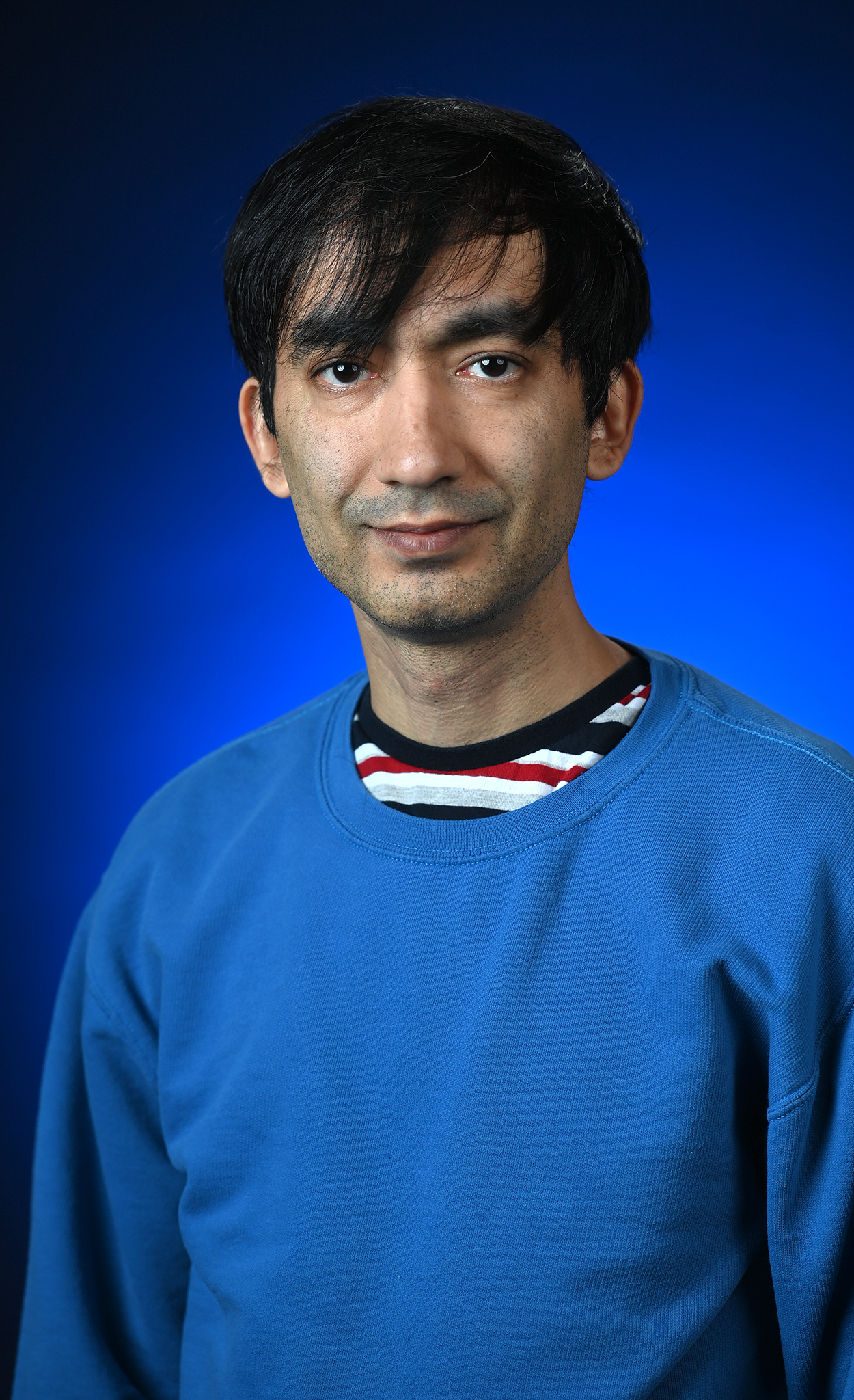
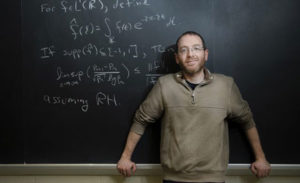
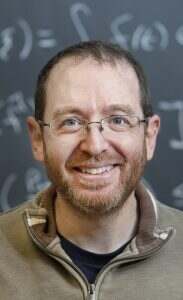


 DECEMBER 17, 2019 BY SHEA STEWART
DECEMBER 17, 2019 BY SHEA STEWART



